Carrying the torch: NYU athletes-turned-coaches
under the arch
Carrying the torch: NYU athletes-turned-coaches
NYU coaches who previously played at NYU spoke to WSN about their time at NYU as both students and staff.
Mikaylah Du, Under the Arch Editor | Dec. 6, 2024
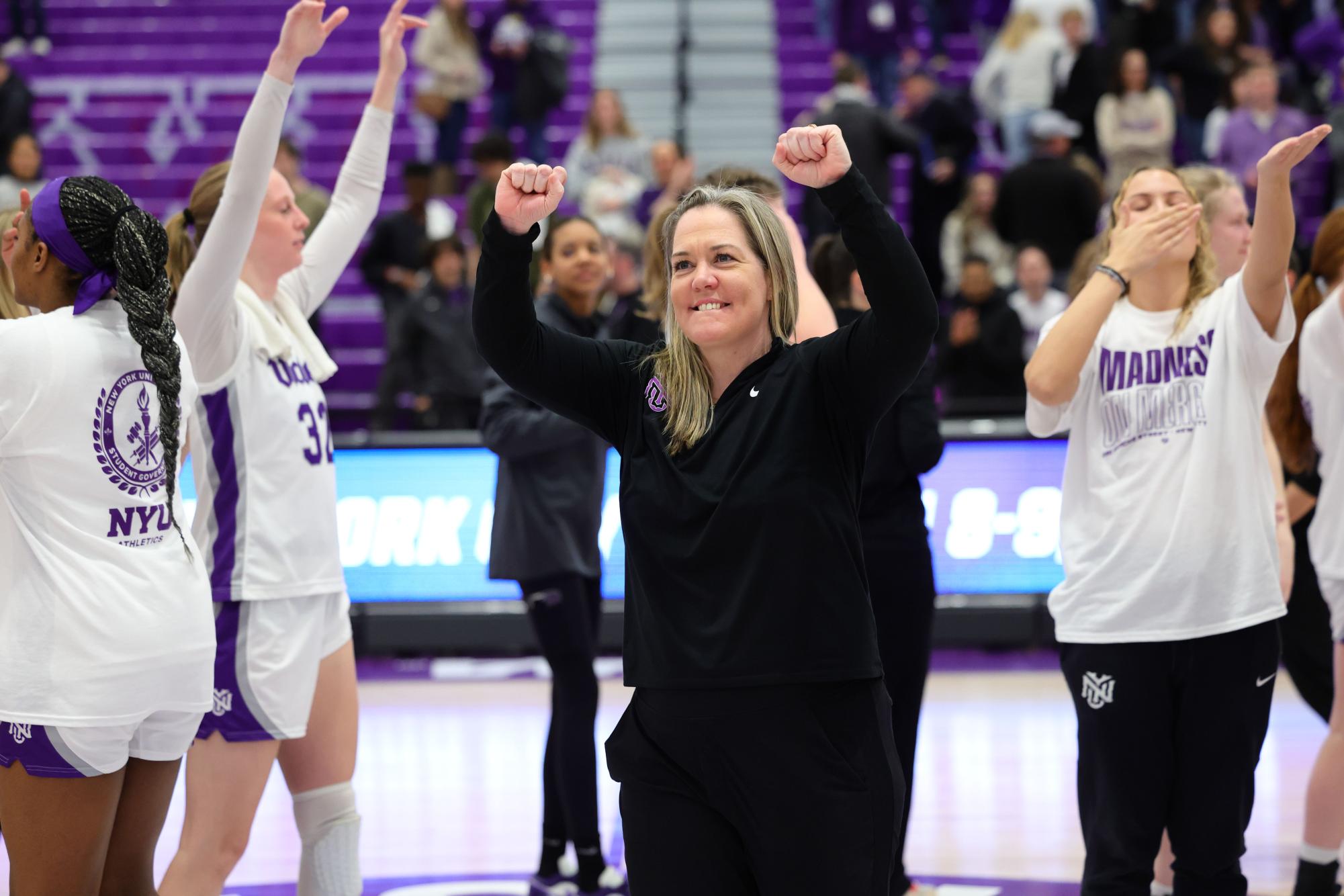
Among the 72 coaches and assistant coaches in NYU’s athletics programs, 14 are former NYU student athletes. Going from learning to teaching within a program gives these coaches a perspective that the others in their department might not have. WSN spoke with four coaches about how they entered their coaching careers, the unique nature of sports at NYU and other post-grad ventures.
Men’s soccer assistant coach Jack Kurtenbach
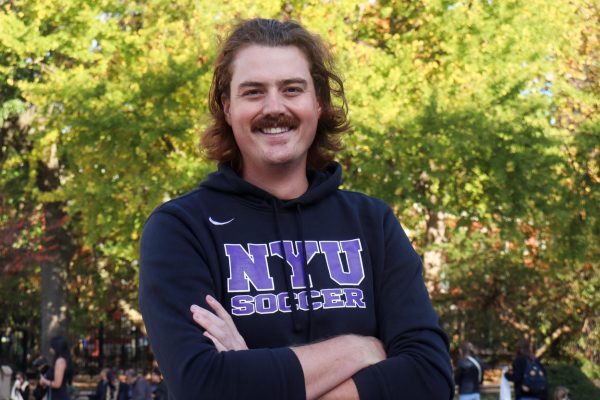
At the age of 2, Jack Kurtenbach was hitting wiffle balls in his backyard with his older brother, and by 4 he was on a Little League team — not the typical backstory of an assistant soccer coach.
He started at NYU as a pitcher on the baseball team, but in his junior year was looking for a change. He spoke with the head coach of the men’s basketball team, Kim Wyant, and began managing the team that year. When he graduated in 2019, she offered him a job as an assistant coach. Although he misses his original sport, he felt that with baseball there was often one “right” play that yielded the best results, and enjoyed the creativity in plays that soccer allowed.
When the COVID-19 pandemic hit and he could no longer make money from in-person recruitment camps, a sizable portion of his coaching revenue, Kurtenbach had to turn to another job to make enough money to stay in New York City — real estate.
Kurtenbach worked in commercial leasing, and when his manager left and put him in charge, he ended up much more involved than he anticipated — and making a lot more money. Although the money was nice, Kurtenbach calls the work he did “soul-sucking,” and he expressed this to his coworkers as the reason why he left after two years in real estate and returned to coaching.
“I think they understood it, but they were also sitting there thinking to themselves, ‘Jack, you’re making a lot of money — what’s the issue?’” Kurtenbach said. “I was just happy to go back into coaching. I think that’s where my head was.”
Kurtenbach said his hometown friends are still surprised he’s coaching instead of commuting to an office job similar to the sports management internships he had throughout college.
“I had the option to go wherever — I could have gone back [home], I could have moved to a new city,” Kurtenbach said. “I was just really excited to get involved with this team and try to take it to the next level. It’s been a positive progression since I’ve been here. I think it’s headed in the right direction.”
Women’s basketball head coach Meg Barber
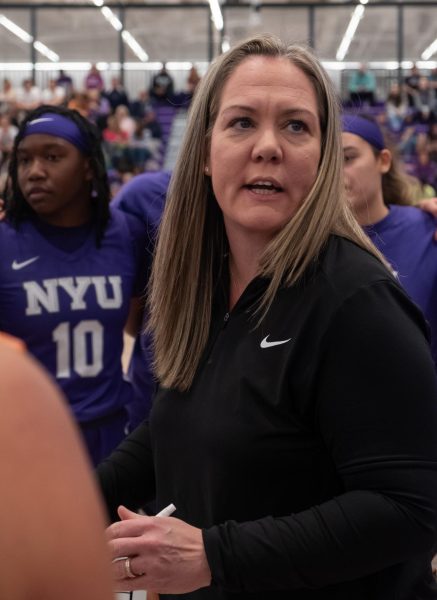
Meg Barber was captain of the women’s basketball team in 2002, now she’s entering her sixth season as the head coach of the team. The most important part about her job is helping foster a community within the team — even though winning the championship last season will be one of her “lifetime highlights.”
“Women’s basketball has a long, successful history here at NYU, but more important than any wins I ever experienced are the relationships and ‘sisterhood’ that I have from being a part of the program,” Barber said. “That has been something we have continued to rely on as a program to this day and it is something we are really proud of.”
Two years ago, Barber helped create Life After Basketball Partners which connects current players with alumni to help mentor the student-athletes and help with their future careers. The closeness between the players — and between players and alumni — mirrors the relationship between herself and her players.
“I try to always lead in an authentic manner,” Barber said. “Our players know me too well, so I can’t try to be someone I’m not.”
Besides support from within the team, Barber appreciates and is impressed by the support the women’s basketball program receives from other student-athletes, classmates, faculty and staff.
“It means so much to show up on game day and see our stands packed with supportive fans,” Barber said. “Keep coming out — we promise to give you our very best.”
Women’s basketball assistant coach Annie Barrett
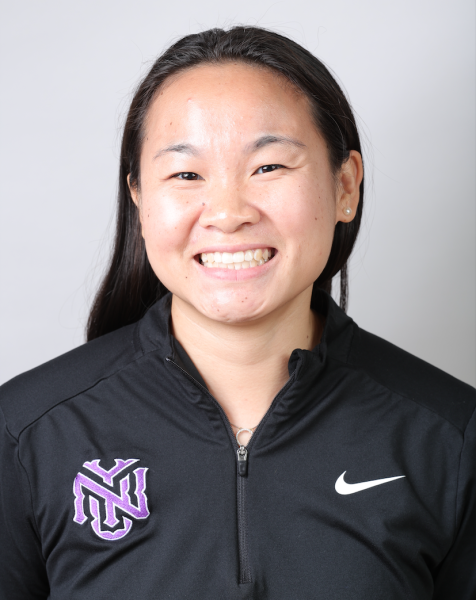
By the time she was on the women’s basketball team in college, Annie Barrett knew she wanted to work in sports, but she wasn’t sure she wanted to be a coach. What made her return to NYU two years after graduating was the people.
“I think the team culture is one of the greatest things here,” Barrett said. “The coaches have built an incredible culture. You meet your best friend, you meet your bridesmaids, the connections you have for life. We call ourselves a sisterhood. Everyone from who I played with to people that coach Barber played with to current players feels very connected.”
Barrett says her proudest moments in her time as a coach were when the players won a national championship last year while also watching the players succeed in their academic and professional lives.
“They’re players but students first, and they’re incredibly smart in the classroom,” Barrett said. “They have a ton of interests outside of basketball, but also they’re some of the best players in Division III. They’ve had a 3.7 team GPA for the past two years. Being able to achieve that while winning a national championship and all the different internships and jobs they get is probably what I’m proudest of. NYU and New York aren’t always easy, but that’s what makes this place so special, and our players grow quickly.”
Head swimming coach Trevor Miele
When Trevor Miele joined the swimming team in 1995, NYU was not as successful as it is today. Named NCAA Division III Coach of the Year in 2024 for women’s swimming, Miele says his proudest achievement in his 11 years of coaching is transforming that team into one that ranks among the top in the nation.
“As an alum and former swimmer, I experienced firsthand the unique combination of top-tier academics and competitive athletics,” Miele said. “I knew that with NYU’s academic reputation, name recognition and strong athletic support, I would be able to develop a nationally competitive program.”
A graduate from Stern School of Business, Miele understands the fine balance NYU athletes maintain between rigorous academics and high-level competition, and says it allows him to empathize better with the student-athletes. Unlike his time at NYU, however, the current team benefits from enhanced resources, a stronger focus on national-level competition and the growing reputation of NYU Athletics.
“I’m incredibly proud to be part of NYU’s legacy,” Miele said. “Our student-athletes inspire me every day with their determination and resilience. I’m excited for the future of the program and grateful for the opportunity to contribute to its success.”
Contact Mikaylah Du at [email protected].
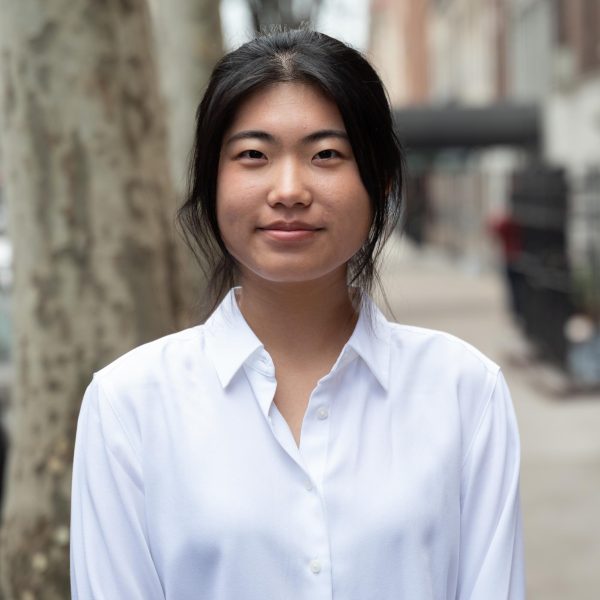
Mikaylah Du is a sophomore majoring in economics on the theory track and minoring in politics and media, culture, and communication. When she’s not tearing...





















































































































































